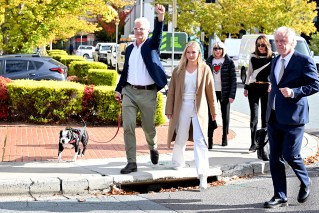How the Japan free trade deal benefits Australia

After seven years of negotiation, Australia signed a free trade agreement with Japan on Tuesday, providing a major win for Australian consumers.
Japanese Prime Minister Shinzo Abe signed the deal in Canberra and it will provide our country with “valuable preferential access” to Japan’s $4.9 trillion economy.
• Lower prices under Japan trade deal a real chance
According to a News Limited report, electronics and appliances produced in Japan are expected to fall in price, and Australians in the financial, legal and telecommunications industries will also have better access to the lucrative Japanese market.
At a glance
• Beef and cheese exporters get better access to Japan
• Cost of Japanese cars and electronics in Australia will fall
• Legal, communications, and financial businesses better access in Japan
• Japanese private investment in Australia to increase
The Abbott government said that the Japan-Australia Economic Partnership Agreement is better than Japan’s agreement with any other partners and would bring our economies even closer.
Mr Abe was given a full ceremonial welcome at Parliament House on Tuesday in the first visit by a Japanese Prime Minister to Australia in 12 years.

Shinzo Abe and Tony Abbott in Canberra. Photo: AAP
Japan is Australia’s second largest trading partner, responsible for $70 billion of trade each year.
Consumers
Speaking with The New Daily, John Hicks, professor of economics at Charles Sturt University, said that the agreement will reduce the price of a range of goods from Japan.
“For Australian consumers, there won’t be any disadvantages at all. Lower prices for the goods and services that they want to spend money on is a good thing,” Mr Hicks said.
The price of Japanese vehicles will decrease, with a reduction on the five per cent import duty on Japanese made cars.
“It’s going to reduce the price of goods and services that we would normally import from Japan,” said Professor Hicks.
The car industry
Luke Nottage, professor of international business law at the University of Sydney, said that tariff protections for the Australian car manufacturing industry had been a major hurdle in negotiating the free trade agreement in the past.
“It was easy for Australia to give up that tariff given that we’re no longer subsidising and supporting car assembly, and so we’ve been able to get around that negotiating block in the discussions with Japan,” said Professor Nottage.
CommSec chief economist Craig James said that car prices were likely to stay the same, but car dealerships would be more inclined to add in extras like reverse cameras.
“Car dealers don’t like to cut the price of a car because if you reduce the price of a new car by $1,500 it affects the resale value of all cars,” said Mr

Japan-made cars like Mazda will become cheaper. Photo: AAP
James.
“But you might get a better stereo system or air conditioning system or reversing cameras – you might get the extras.”
Business owners
The trade agreement is expected to be a massive boon for Australian business, with the Japanese market becoming more accessible, according to the News Limited report.
The Economic Partnership agreement, as Japan prefers to call it, will lead to a greater Australian business presence in Japan, especially for the telecommunications, legal and financial industries.
On his Australian visit, Mr Abe has brought with him a delegation of influential Japanese businessmen, including the heads of Mitsubishi, Nippon Steel and NEC.
Mitsubishi Corp Chairman Yorihiko Kojima told The Australian that Australia was an attractive investment destination for Japan.
Food exporters
Japanese tariffs will also be reduced as part of the deal, with Australian beef producers one of the biggest beneficiaries of the new trade agreement.
According to the Department of Foreign Affairs and Trade, Japan’s standard tariff on beef will be reduced from 38.5 per cent to 19.5 per cent for Australian beef producers.
The $372 million dairy market will also have duty free access to Japanese consumers.








